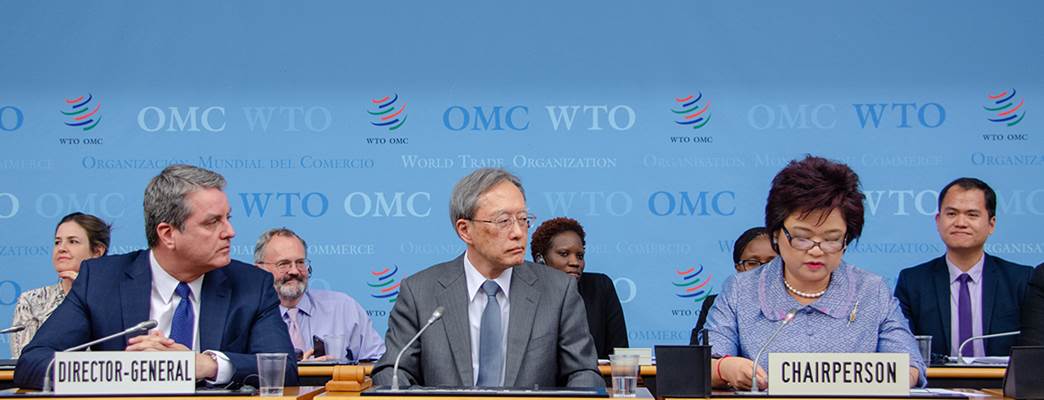AGENDA ITEM 4.
Thank you, Chair.
Let me join others in thanking the facilitator for his efforts and for the comprehensive and precise report from the informal process. The informal process provides Members with an arena where we can work together to find sustainable solutions. Unfortunately, we are not there yet, so this process will have to continue.
Norway has a strong interest in safeguarding the fundamental elements of the dispute
settlement system. Norway experienced first-hand the flaws of the dispute settlement system under the GATT. The current system was a huge improvement, one that has benefitted the entire membership of the WTO.
Undoubtedly there may be instances where the system can be improved, but it is important that any changes do not undermine the achievements that were made when the system was established in 1994/1995.
Norway has listened attentively to the concerns raised. We have also taken note of the many ideas and proposals that have been put forward, and co-sponsored some of them.
We have witnessed constructive discussions in the informal process, and Norway is encouraged by the active and solution-oriented engagement from many Members.
However, the question remains as to what is needed in order to move this process forward. Permit me to make a couple of points in this regard.
First of all, we have heard the argument that we must first agree to “why Members have permitted the Appellate Body to stray away from what was originally agreed” before we can discuss possible solutions.
This proposed sequencing adds another potentially divisive element to our discussions. We have not heard a compelling argument for why this is so crucial. Rather than adding difficult steps to our already arduous journey, we believe it would be better to focus directly on exploring possible solutions based on actual proposals.
Secondly, Members have responded to the concerns raised by actively and constructively presenting concrete proposals. On a number of occasions, these proposals have been met by statements from one Member indicating that they are “not effectively addressing our concerns”. If that is the case, Norway would certainly welcome concrete proposals from that Member that might move the discussions forward towards a solution.
My third and final point is related to the blockage of the process of appointing members of the Appellate Body. Members have responded constructively and in good faith to the concerns raised regarding the Appellate Body. Now would be a good time for a similar response and signal of good faith by agreeing to initiate the appointment process.
Thank you, Chair.
AGENDA ITEMS 6 AND 7
Thank you, Chair.
I am making this statement in relation to items 6 and 7 on the agenda.
Norway acknowledges that the submissions raise issues that are very important to address.
Norway is of the view that special and differential treatment is an integral part of our
toolbox, which supports the integration of developing members into the multilateral
trading system.
We note, however, that widely diverging views on these issues makes it extremely difficult to reach multilateral negotiated outcomes. We need to find a more constructive way to have a conversation about trade and development.
Chair,
Norway recognizes that LDCs in particular face constraints, which we are committed to help addressing.
Furthermore, Norway believes that a more pragmatic approach would be helpful. Let us
focus on the contributions in terms of binding commitments that each Member is able to make within each area of current and future negotiations. It is the result that matters.
Norway is committed to engaging actively and constructively in the discussion with a view to bridging the differences within the membership.
Thank you.
AGENDA ITEM 8
Thank you, Chair.
We thank the United States for the statistical documentation circulated in WT/L/1055.
This is an important item on the agenda, since the waiver in essence makes it impossible to sell ships to the United States.
Norway believes this review should focus on the salient point of paragraph 3 (b) of the General Agreement on Tariffs and Trade 1994, which is the examination of whether the conditions which created the need for the exemption still prevail.
It is our view that there is a need to move beyond the point of discussing only statistical information submitted under paragraph 3 (c) of GATT 1994. There is a real need to address the conditions for the exemption and whether there still is a need for this exemption.
As far as the next practical steps in this process are concerned, we are prepared to go along with the procedure suggested by you Chair.
Thank you.
